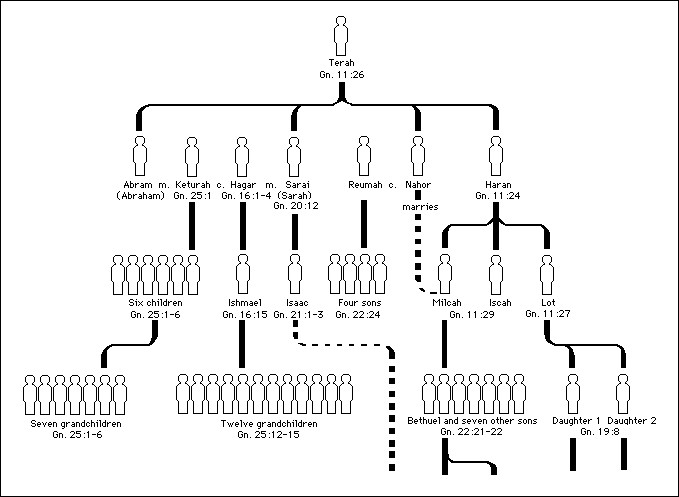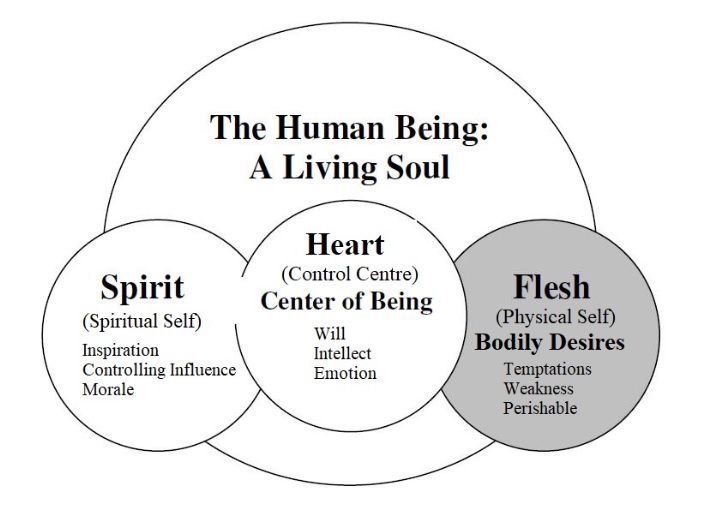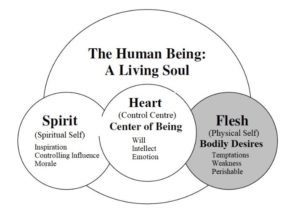 Did you know the noun ‘sarcasm’ literally means to ‘rip the flesh off a person’? This word study is on the Greek noun σάρξ which is transliterated as sarx. In the ESV translation it is rendered ‘flesh’. It has various cognates sarki, sarka, sarkinos, etc, which likewise are rendered ‘flesh’ in the ESV. I’ll refer to this noun and its cognates with their transliterations throughout.
Did you know the noun ‘sarcasm’ literally means to ‘rip the flesh off a person’? This word study is on the Greek noun σάρξ which is transliterated as sarx. In the ESV translation it is rendered ‘flesh’. It has various cognates sarki, sarka, sarkinos, etc, which likewise are rendered ‘flesh’ in the ESV. I’ll refer to this noun and its cognates with their transliterations throughout.
My study initially categorised the results by source: 1) Gospels and Acts, 2) Paul and 3) the Pastoral Epistles. On the whole however there is considerable overlap (common understanding and application), so I will generally focus on Pauline usage, but throw in some from the other sources as required.
Contents
Physical Bodies
Sarx refers to the physical body of all kinds of creatures (it’s flesh and muscles).
For not all sarx is the same, but there is one kind for humans, another for animals, another for birds, and another for fish. (1 Cor 15.39; cf. 1 Pet 1.24)
This of course includes human beings.
The life I now live in the sarki I live by faith in the Son of God. (Gal 2:20)
Paul recognising the possibility of physical death he says the following;
Yes, and I will rejoice, 19 for I know that through your prayers and the help of the Spirit of Jesus Christ this will turn out for my deliverance, 20 as it is my eager expectation and hope that I will not be at all ashamed, but that with full courage now as always Christ will be honored in my body [somati], whether by life or by death. 21 For to me to live is Christ, and to die is gain.
22 If I am to live in the sarki, that means fruitful labor for me. Yet which I shall choose I cannot tell. 23 I am hard pressed between the two. My desire is to depart and be with Christ, for that is far better. 24 But to remain in the sarki is more necessary on your account. (Phil 1.18-24; cf. 2 Cor 10.3; 12.7; Gal 2.20; Eph 5.29; Col 1.24; Phm 16; Lk 3.6; Jn 17.2; Acts 2.17, 26; Heb 2.14)
Referring to the whole physical body, the sarka is sometimes paired with blood.
For we do not wrestle against sarka and blood, but against the rulers, against the authorities, against the cosmic powers over this present darkness, against the spiritual forces of evil in the heavenly places. (Eph 6.12; cf. Mt 16.17)
Paul here is saying their struggle is not with human beings, but the worldly and spiritual powers behind them.
While the majority of references to sarx are associated with physical bodies. There are noted exceptions describing the union of man and woman in marriage (Mt 19.5-6; Mk 10.8; 1 Cor 6.16; Eph 5.31).
Human descent
Sarx can denote lines of human descent. Families through generations.

To them [the Jews] belong the patriarchs, and from their race, according to the sarka, is the Christ, who is God over all, blessed forever. Amen. (Rom 9.5; cf. Rom 1.3; 4.1; 9.3,8)
The birth of human beings is often described as according to the sarx.
21 Tell me, you who desire to be under the law, do you not listen to the law? 22 For it is written that Abraham had two sons, one by a slave woman and one by a free woman. 23 But the son of the slave was born according to the sarka, while the son of the free woman was born through promise. (Gal 4.21-23; cf. Gal 4.29; Jn 1.12-13; 3.6; 6.63)
The expression, I think is clarified by Paul’s use of it in Romans 9.
6 But it is not as though the word of God has failed. For not all who are descended from Israel belong to Israel, 7 and not all are children of Abraham because they are his offspring, but “Through Isaac shall your offspring be named.” 8 This means that it is not the children of the sarkos who are the children of God, but the children of the promise are counted as offspring. (Rom 9.6-8)
Some argue Paul in Gal 4.23,29 refers to Abraham’s unbelief in God’s promise and thus sinful desire to father offspring on his own. However Paul associates the same expression for many offspring in Israel in Rom 9.6-8, not only Abraham’s immediate children and not Ishmael’s descendents. In both cases of course Abraham had to have sex with Sarah his wife in order to have the children. Thus Paul’s expression most likely in my opinion refers to the fleshly and disobedient descendents of Israel, in contrast to the true Israel, the remnant which believes in God’s promises.
Circumcision

Along racial lines again. Sarx is occasionally associated with the physical act of circumcision. Sarx here alludes to the flesh of the male penis, which in turn signifies (old) covenant membership in Israel.
Therefore remember that at one time you Gentiles in the sarki, called “the uncircumcision” by what is called the circumcision, which is made in the sarki by hands (Eph 2.11; Gal 6.12-13; Phil 3.2-4)
Makeup of the Human Being
For a bit of context, note that throughout Paul’s writings he refers to distinct elements of the human being. I group these under three categories;

- The heart (Rom 1.21; 2.29; 5.5; 6.17; 8.27; 9.2; 10.1,8-10; 1 Cor 4.5; 7.37; 14.25; 2 Cor 3.3; 9.7; Eph 3.17; 4.18) and mind (Rom 1.28; 8.6-7; 12.2; 14.5; 1 Cor 2.16; 14.14-15; 2 Cor 3.14; 4.4; 7.1; Eph 2.3; 4.23; Col 1.21; 3.2; 2 Tim 4.5; Tit 1.15). These are the control centre of the human being. The elements which include the will, intellect and emotion.
- The spirit (Rom 1.9; 1 Cor 2.11; 5.5; 7.34; 14.14-16, 32; 16.18; 2 Cor 2.13; 7.1,13; Gal 6.18; Eph 4.23; Phil 4.23; 1 Thes 5.23; 2 Tim 4.22; Phm 25) of a person. This is the spiritual self, distinct from the Holy Spirit. There is some overlap between this category and the above category. However I found it often pertains to a person’s controlling influence and morale.
- The body and sarx of a person.
It was common to differentiate between the sarx of a person and their spirit (Lk 24.39).
The sarx of human beings is not to be equated with their ‘nature’. Nature consists of the basic or inherent features, characteristics, or qualities of something. In my reading, sarx is only one part of the whole human being. It is therefore a key part of human nature, but not the whole.
Characteristics of the Sarx
The sarx has a set of characteristics which are commonly recognised by the authors of scripture.
Weakness and Frailty
Sarx is recognisably weak, frail, and it needs rest.
40 And he came to the disciples and found them sleeping. And he said to Peter, “So, could you not watch with me one hour? 41 Watch and pray that you may not enter into temptation. The spirit indeed is willing, but the sarx is weak.” (Mt 26:40–41)
It is perishable and subject to death.
For we who live are always being given over to death for Jesus’ sake, so that the life of Jesus also may be manifested in our mortal te sarki (2 Cor 4.11; cf. 1 Cor 15.50; Gal 5.24; Mt 26.41; Mk 14.38).
Bodily Desires and Temptations
Sarx is frequently recognised as the source of bodily desires and temptations. The sinful (almost animal) desires and temptations for sex, food, possessions and comfort.
2 And you were dead in the trespasses and sins 2 in which you once walked, following the course of this world, following the prince of the power of the air, the spirit that is now at work in the sons of disobedience— 3 among whom we all once lived in the passions of our sarkos, carrying out the desires of the body and the mind, and were by nature children of wrath, like the rest of mankind. (Eph 2.1-3; cf. Rom 7.5; Gal 5.17; Col 2.23; 2 Pet 2.18; 1 Jn 2.16)
Paul refers to the passions and desires of the sarkos. Remembering the entire human being consists of heart-mind, spirit, and body-flesh. Pauls depiction here of sarkos, body and mind I think is meant to describe the whole human being. Thus he goes on to group them together under their (former) nature.
The relationship between the sarx, temptation and sin is important. James says;
12 Blessed is the man who remains steadfast under trial, for when he has stood the test he will receive the crown of life, which God has promised to those who love him.
13 Let no one say when he is tempted, “I am being tempted by God,” for God cannot be tempted with evil, and he himself tempts no one.
14 But each person is tempted when he is lured and enticed by his own desire. 15 Then desire when it has conceived gives birth to sin, and sin when it is fully grown brings forth death. (Jas 1.12-15)
As I will again argue when we discuss the implications of Jesus becoming sarx. James lists a chain of events: Temptation-desire, (giving in-indulging), sin and lastly the consequence of sin-death. Temptations and desire do not necessarily imply a person is giving in to their desires and thus sinful. Giving in to those desires, indulging in them is sinful. But people can resist temptation as well (e.g. 1 Pet 2.11). This is exactly what Jesus did and what the apostles call his followers to do.
Heart and Mind Dominated
To be ‘in the sarki’ and ‘of the sarki’ is to have one’s heart and mind continually give in and be dominated by their bodily temptations and desires.
7 For the mind that is set on the sarkos is hostile to God, for it does not submit to God’s law; indeed, it cannot. 8 Those who are in the sarki cannot please God. (Rom 8:7–8; cf. Rom 8.9)
3 But I, brothers, could not address you as spiritual people, but as people of the sarkinois, as infants in Christ. 2 I fed you with milk, not solid food, for you were not ready for it. And even now you are not yet ready, 3 for you are still of the sarkikoi. For while there is jealousy and strife among you, are you not of the sarkikoi and behaving only in a human way? (1 Cor 3.3)
Sinful Lifestyle
As mentioned above, when a person’s heart and mind give in to bodily temptations and desires, sin will result. Paul calls these the ‘works of the sarkos’.
19 Now the works of the sarkos are evident: sexual immorality, impurity, sensuality, 20 idolatry, sorcery, enmity, strife, jealousy, fits of anger, rivalries, dissensions, divisions, 21 envy, drunkenness, orgies, and things like these. I warn you, as I warned you before, that those who do such things will not inherit the kingdom of God. (Gal 5:19-21)
Note; a good portion of these are associated with bodily desires and temptations. Especially sex and coveting possessions.
Ongoing works of the sarkos will constitute a whole lifestyle oriented towards the gratification of the bodies desires. Paul is clear this is the former lifestyle of many of his converts.
5 For while we were living in the sarki, our sinful [hamartion] passions, aroused by the law, were at work in our members to bear fruit for death.
6 But now we are released from the law, having died to that which held us captive, so that we serve in the new way of the Spirit and not in the old way of the written code. (Rom 7.5-6)
Christ in the Sarx
Significant elements in the story of Jesus depend on him becoming sarx, dying in the sarx and rising with power and then interceding for his people having experienced the temptations of the sarx.
Christ’s Birth

John’s gospel famously reports that the word of God became sarx.
And the Word became sarx and dwelt among us, and we have seen his glory, glory as of the only Son from the Father, full of grace and truth. (Jn 1.14; cf. 1 Jn 4.2; 2 Jn 7)
Likewise Paul repeats what are most probably, early creeds or poems;
Great indeed, we confess, is the mystery of godliness:
He was manifested in the sarki; vindicated by the Spirit; seen by angels; proclaimed among the nations; believed on in the world; taken up in glory. (1 Tim 3.16)
5 Have this attitude in yourselves which was also in Christ Jesus, 6 who, although He existed in the form of God, did not regard equality with God a thing to be grasped, 7 but emptied Himself, taking the form of a bond-servant, and being made in the likeness of men. 8 Being found in appearance as a man, (Phil 2.5-8)
When Paul says here Christ was made in the likeness [ὁμοίωμα homoiōma] of men he means he was made to be exactly the same. Jesus was fully man – fully God.
Jesus was part of the Hebrew family, his with David as one of his ancestors.
1 Paul, a servant of Christ Jesus, called to be an apostle, set apart for the gospel of God, 2 which he promised beforehand through his prophets in the holy Scriptures, 3 concerning his Son, who was descended from David according to the sarka 4 and was declared to be the Son of God in power according to the Spirit of holiness by his resurrection from the dead, Jesus Christ our Lord (Rom 1.1-4; cf. Rom 9.5)
This is a key element in Paul’s gospel message (2 Tim 2.8).
Christ’s Atoning Death

According to the author of Hebrews, Christ had to share in our sarkos and blood in order for his death to have atoning significance.
14 Since therefore the children share in sarkos and blood, he himself likewise partook of the same things, that through death he might destroy the one who has the power of death, that is, the devil, (Heb 2.14; cf. Heb 10.20)
Paul (Eph 2.14; Col 1.22), Peter (1 Pet 3.18; 4.1) and John (Jn 6.51-56) all follow suit.
Anselm (1033-1109) famously argues;
‘If we are ever to be forgiven, we must repay what we owe. Yet we are incapable of doing this, either for ourselves of for other people. Our present obedience and good works cannot make satisfaction for our sins, since these are required of us anyway. … One who is a sinner cannot justify another sinner. … Man the sinner owes to God, on account of sin, what he cannot repay, and unless he repays it he cannot be saved’ (i.xxv) … ‘There is no-one who can make this satisfaction except God himself, but no one ought to make it except man; otherwise man cannot make satisfaction … Therefore it is necessary that one who is God-man should make it. … It is needful that the very same Person who is to make this satisfaction be perfect God and perfect man, since no-one can do it except one who is truly God, and no one ought to do it except one who is truly man.’ (Anselm, Cur Deus Homo)
Christ’s Resurrection

Christ’s resurrection has a significant effect on his bodily existence.
1 Paul, a servant of Christ Jesus, called to be an apostle, set apart for the gospel of God, 2 which he promised beforehand through his prophets in the holy Scriptures, 3 concerning his Son, who was descended from David according to the sarx 4 and was declared to be the Son of God in power according to the Spirit of holiness by his resurrection from the dead, Jesus Christ our Lord (Rom 1.1-4)
42 So is it with the resurrection of the dead. What is sown is perishable; what is raised is imperishable. 43 It is sown in dishonor; it is raised in glory. It is sown in weakness; it is raised in power. 44 It is sown a natural body; it is raised a spiritual body. If there is a natural body, there is also a spiritual body. …
50 I tell you this, brothers: sarx and blood cannot inherit the kingdom of God, nor does the perishable inherit the imperishable.
51 Behold! I tell you a mystery. We shall not all sleep, but we shall all be changed, 52 in a moment, in the twinkling of an eye, at the last trumpet. For the trumpet will sound, and the dead will be raised imperishable, and we shall be changed. (1 Cor 15.42-44, 50-52)
Note the association of sarx with resurrection by the power of the Holy Spirit. What distinguishes bodies in the kingdom of God, from those we have now, is that these new bodies will be animated by the Holy Spirit (supercharged?). This is what Paul means when he says we will have a ‘spiritual’ and ‘heavenly’ body.
Sarx cannot inherit the kingdom of God. Perishable sarx will be raised in power by the Holy Spirit to become a new spiritually animated body which will be imperishable.
Christ’s Intercession
Similarly from Hebrews, the fact that Jesus shared in our sarkos and blood also meant he would be exposed to the temptations and desires that come from the sarkos.
15 For we do not have a high priest who is unable to sympathize with our weaknesses, but one who in every respect has been tempted as we are, yet without sin. (Heb 4.15)
Christ’s experience of temptation qualifies him to intercede on our behalf. A little later the author of Hebrews says;
25 Consequently, he is able to save to the uttermost those who draw near to God through him, since he always lives to make intercession for them. 26 For it was indeed fitting that we should have such a high priest, holy, innocent, unstained, separated from sinners, and exalted above the heavens. (Heb 7.25-26; cf. Rom 8.34; 1 Jn 2.1)
Sinful Sarkos?
Paul brings the above together saying;
3 For God has done what the law, weakened by the sarkos, could not do. By sending his own Son in the likeness [ὁμοίωμα homoiōma] of sinful [ἁμαρτία hamartias] sarkos and for sin, he condemned sin in the sarki, (Rom 8.3)
Jesus Christ, the Son of God was sent in the likeness of sinful sarkos. ‘Likeness’ means the form is identical with the reality. Schreiner observes;
In Phil. 2:7, however, ὁμοίωμα means “identity” or “form,” not just “likeness.” Paul’s point is that Jesus was “in the form of a man,” that he became truly human, not that he was merely like humans. Nonetheless, in Phil. 2:7 ὁμοίωμα may also suggest that the identity between Jesus and human beings is not analogous in every respect. This does not detract at all from the reality of Jesus’ being truly and fully human; it suggests only that he is different in at least one respect from other humans—he was also “in the form of God” and “equal with God” (Phil. 2:5).
Romans 8:3 should be interpreted similarly: God sent Jesus “in the likeness of sinful flesh.” The word ὁμοίωμα denotes identity between Jesus and sinful human beings. He was truly human and experienced the effects of living in a sinful world. Yet ὁμοίωμα suggests that the identity between Jesus and human beings is not comparable in every respect. He was truly human, yet he is distinguished from other human beings in that he lived without sin. (Thomas R. Schreiner, Romans, vol. 6, Baker Exegetical Commentary on the New Testament (Grand Rapids, MI: Baker Books, 1998), 314.)
Jesus had a body which was subject to the same sinful temptations and bodily desires (sinful sarkos; Heb 4.5 above) all mankind experiences. Yet he knew no sin (2 Cor 5.21). Christ was made in the likeness of sinful sarkos to die for our sins, thus reconcile us to God, and also that having experienced the temptations and desires all mankind experiences, he is better able to intercede for his people before God.
Spiritual Circumcision

According to the authors of scripture, people undergo radical changes in heart, mind and spirit when they come to faith in Christ Jesus. Not in the least, the Holy Spirit comes to dwell in them. He circumcises their hearts and enlightens their minds. I’ve outlined these changes in my page on future judgment and salvation here.
The sarx (along with its temptations and desires) has not changed. It won’t until resurrection. But the fact that the control centre (the head and mind) has changed and the person is indwelt by the Holy Spirit now has a direct effect on the influence of the sarx on the Christian.
11 In him also you were circumcised with a circumcision made without hands, by putting off the body of the sarkos, by the circumcision of Christ, 12 having been buried with him in baptism, in which you were also raised with him through faith in the powerful working of God, who raised him from the dead.
13 And you, who were dead in your trespasses and the uncircumcision of your tes sarkos, God made alive together with him, having forgiven us all our trespasses, (Col 2:11–13)
And those who belong to Christ Jesus have crucified the sarka with its passions and desires. (Gal 5.24)
Paul will go so far as to say they are a new creation and will refuse to identify them according to the sarx any longer.
16 From now on, therefore, we regard no one according to the sarka. Even though we once regarded Christ according to the sarka, we regard him thus no longer. 17 Therefore, if anyone is in Christ, (he is a) new creation! The old has passed away; behold, the new has come. (2 Cor 5.16-17)
Mind control
I’ve gone into a little detail describing compatibilism in my page on future judgment and salvation here. In it I describe a concept called agency.

Agency is the capacity of an actor to act in a given environment. Divine agency concerns the sovereign will of God to determine all things according to his definite plan. Human agency is the capacity for human beings to make choices. It entails the claim that humans do in fact make decisions and enact them on the world.
This is assumed with respect to believers, who have had the control centre of their being circumcised and enlightened. They now have agency. The ongoing responsibility to choose (Gal 5.24; Rom 8.12-13) whether to give in to the desires of the sarx or to live under the influence of the Spirit. Every imperative given to believers in the NT assumes they have agency.
If we consider before the outpouring of the Spirit, some were recognisably faithful to God (e.g. Gen 26.5; Josh 22.1-6; Ps 25.10; Lk 1.5-6). It makes sense that they had circumcised hearts which resisted the impulses of the sarx and kept God’s commands even if the Spirit did not dwell within them. Having a transformed heart and mind is critical to obey God’s commands.
(Note: Romans 7.14,18,25 might be argued to the contrary. However, most scholars and myself argue the ‘I’ in Romans 7.7-25 depicts the state of unbeliever in thrall to the power of sin. This may be Paul before conversion. But the most convincing option for me at the moment is it is Paul’s rhetorical opponent, a Gentile convert to Judaism, with whom Paul is in conversation throughout Romans. See my review of Rodriguez, If You Call Yourself a Jew; also Song, Reading Romans as a Diatribe. Interpreting it as Paul own experience as a believer contradicts many of his statements in the immediate context and throughout his writings. I’ve written on it here.)
Paul says in Romans 8;
8 There is therefore now no condemnation for those who are in Christ Jesus. 2 For the law of the Spirit of life has set you free in Christ Jesus from the law of sin and death. 3 For God has done what the law, weakened by the sarkos, could not do. By sending his own Son in the likeness of sinful sarkos and for sin, he condemned sin in the sarki, 4 in order that the righteous requirement of the law might be fulfilled in us, who walk not according to the sarka but according to the Spirit.
5 For those who live according to the sarka set their minds on the things of the sarkos, but those who live according to the Spirit set their minds on the things of the Spirit. 6 For to set the mind on the sarkos is death, but to set the mind on the Spirit is life and peace. 7 For the mind that is set on the sarkos is hostile to God, for it does not submit to God’s law; indeed, it cannot. 8 Those who are in the sarki cannot please God.
9 You, however, are not in the sarki but in the Spirit, if in fact the Spirit of God dwells in you. Anyone who does not have the Spirit of Christ does not belong to him. (Rom 8:1–9; cf. Rom 8.12; 13.14; Gal 5.13, 16)
The same understanding is reflected in Peter.
4 Since therefore Christ suffered in the sarki, arm yourselves with the same way of thinking [ἔννοιαν ennoian], for whoever has suffered in the sarki has ceased from sin, 2 so as to live for the rest of the time in the sarki no longer for human passions but for the will of God. (1 Pet 4.1-2; cf. 1 Pet 2.11; 1 Jn 2.15-17)
New Lifestyle
At several points Paul compares and contrasts the new lifestyle in the Spirit with that in the sarx. This involves a contrast between the sarx and the Spirit.
7 Do not be deceived: God is not mocked, for whatever one sows, that will he also reap. 8 For the one who sows to his own sarka will from the sarkos reap corruption, but the one who sows to the Spirit will from the Spirit reap eternal life. 9 And let us not grow weary of doing good, for in due season we will reap, if we do not give up. 10 So then, as we have opportunity, let us do good to everyone, and especially to those who are of the household of faith. (Gal 6:7–10; cf. Rom 8.4-5,13; Gal 3.3)
Likewise in Peter;
6 For this is why the gospel was preached even to those who are dead, that though judged in the sarki the way people are, they might live in the spirit the way God does. (1 Pet 4.6)
In both cases the authors assume their audiences have agency. That is with their minds they will choose to live according to the Spirit’s guidance and depend on him.
Copyright © Joshua Washington and thescripturesays, 2018. All Rights Reserved.

